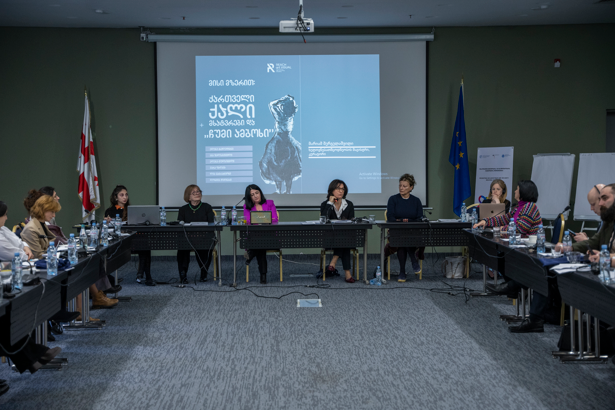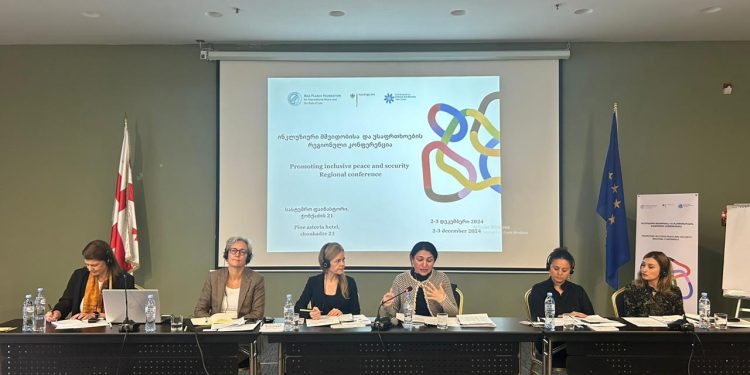Last week, Tbilisi hosted a regional two-day conference, titled Empowering Voices for Inclusive Peace and Security. The event brought together representatives from academia, analytical circles, the media, civil society, and the diplomatic community for in-depth discussions on the challenges women face in this field, while emphasizing their crucial role in shaping foreign policy and development agendas.
In modern-day Georgia, amid pressing security challenges, women play an essential role in peacebuilding and in improving the economic conditions of communities affected by conflict, particularly at the grassroots level. However, they remain significantly underrepresented in peace and security processes, especially at the decision-making level, with their perspectives and experiences frequently ignored.

The need for increased female participation in peace and security efforts has been on the agenda for more than two decades. The adoption of UN Security Council Resolution 1325 on Women, Peace, and Security in 2000 was a significant step forward. Despite numerous global and regional commitments, women’s involvement in formal processes remains limited. Ten years ago, gender-responsive approaches to foreign policy gained further momentum. Following Sweden’s adoption of a feminist foreign policy in 2014, other countries have followed suit, placing greater emphasis on women’s rights and enacting female-centered foreign, development, or trade policies. These countries include Norway (2016), Canada (2017), France (2019), Luxembourg (2019), Mexico (2020), Spain (2021), Chile (2022), Germany (2022), Mongolia (2022), the Netherlands (2022), Colombia (2023), and Slovenia (2023). In 2024, the United Kingdom and the European Union also implemented these policies, with the EU taking the lead as the first multilateral institution to embrace this approach. An increasing number of countries now recognize that achieving gender equality in this field is crucial for fostering peace, security, and stability. The EU is actively working with member states to contextualize and implement this new foreign policy framework.

The two-day program delved into a range of topics, such as the role of women in inclusive peacebuilding, the stories of significant yet historically overlooked female public figures in Georgia, the rise of anti-feminism and its effects on the local context, and insights drawn from Germany’s gender-focused foreign and development policies. A particularly memorable highlight was the presentation of year-long academic projects on the subject carried out by Kutaisi and Batumi State Universities, in collaboration with both external and local experts.
The conference opened with a panel of ambassadors addressing the importance of women’s participation in foreign policy during times of crisis and uncertainty. Among the speakers were Anne Toft Sørensen, Danish Ambassador to Georgia; Sheraz Gasri, French Ambassador to Georgia; Meline Arakalian, Dutch Ambassador to Georgia; and Bergljot Hovland, Norwegian Ambassador to Georgia, along with Kathrin Maria Scherr, the managing director of the Max Planck Foundation. The ambassadors offered insightful perspectives on their countries’ efforts to promote gender equality within foreign policy institutions and through their development agendas.
The closing session, held in collaboration with the art consultancy Reach Art Visual, focused on the role of women in cultural diplomacy and their recent achievements in promoting Georgia on the international stage. It highlighted the significant, yet often overlooked, contributions of Georgian female painters to the country’s artistic legacy, illustrating how art can amplify disadvantaged voices and reshape cultural narratives.

The conference was organized by the Civil Council on Defense and Security, with financial support from the German Federal Foreign Office and the Max Planck Foundation for International Peace and the Rule of Law.














